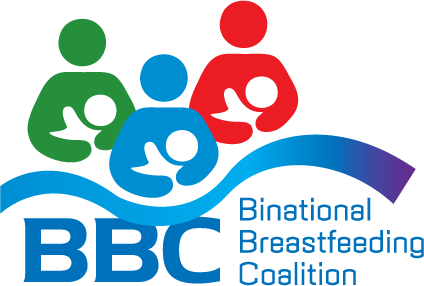Binational Breastfeeding Coalition receives recognition at the US national level
First Food Racial Equity Cohort
The Centers for Social Inclusion (CSI) made a call to health professionals working in the field of breastfeeding to be part of the First Food Racial Equity Cohort. More than 70 health professionals applied and through an open application process, 17 individuals were selected. Among those was BBC’s own Rosalba Ruiz-Holguin.
The Cohort includes a cross section of participants from the field, emerging and established leaders with varying levels of experience and exposure. Since the group is diverse in race, age, and experience, it will be most effective in building alliances across divisions and in delivering the message that racial equity impacts and can truly benefit all communities.
The Cohort will follow a “train the trainers” model to become a central capacity builder in the broader field of First Food. The trainings will encompass a variety of topics including:
- Structural race (both basic and advanced understanding and application)
- Racially equitable policy and strategy development,
- Organizational change strategies,
- Facilitation and meeting management, and
- Effective communications strategies (how to talk effectively about race).
CSI has established a curriculum which will be tailored to the Cohort’s collective understanding once the Cohort is established and surveyed.
In addition to training, the Cohort will have the opportunity to co-lead CSI sessions out in the field and within their organizations. The Cohort will also partner with CSI to develop a set of tools to assist their home organizations to implement racial equity in both their internal policies and external policy advocacy and community engagement.
The first meeting took place on March 29th at the National Disability Rights Network Office in Washington DC.
Where does the term first food come from? For years, women have been bombarded with overly simplistic messaging about the importance of breastfeeding. Studies prove that breast milk is the optimal first food and has been proven to reduce the risk of asthma, upper respiratory infections, ear infections and childhood obesity. Yet, placing the burden of responsibility solely on women is unfair and unrealistic. A woman should have more support beyond her own personal resolve to give her infant the best first food possible. And while recent efforts to level the playing field in hospitals so that all mothers can have informed decision making around their first food choice are noteworthy, if a woman returns home after a short hospital stay to a community that is not supportive, she is still less likely to be successful at breastfeeding. It is time for communities to become stakeholders in the health of their youngest and most vulnerable residents. It is time for every community to be First Food Friendly—a place where all babies thrive and all mothers are fully supported.
First Food Forum
From March 30th to April 1st, more than 180 leaders gathered in Washington D.C. to explore racial bias, barriers to breastfeeding and actions toward health equity. It will take every one of us to ensure all babies, moms and families have the opportunity to experience breastfeeding's benefits. The invitation was made by the W.K. Kellogg Foundation and BBC members Bethany Mata and Rosalba Ruiz-Holguin were presenters in a plenary session and in a panel.
Research shows that babies who breastfeed or receive exclusive access to breast milk for the first six months of life have better health, educational and emotional outcomes. The W.K. Kellogg Foundation believes a mother's breast milk is the optimal first food to give children the best start to good health.
The main goals of the First Food Forum are to:
- Strengthen and expand the network;
- Develop a shared understanding of one another’s work and how to obtain a broader effort;
- Learn about promising practices, cultural competent models and relevant research;
- Begin conversations toward creating a shared “language” and a unified vision and finally
- Identify individuals and collective actions to advance the movement.
This was an excellent opportunity to showcase the work on breastfeeding that is being done along the US-Mexico Border as well as a learning and networking opportunity. The Binational Breastfeeding Coalition shares the W.K. Kellogg Foundation’s vision: a nation that assures that all children have an equitable and promising future – a nation in which all children thrive.
Watch the "Breastfeeding along the US-Mexico Border" presentation on You Tube (click HERE to view)


